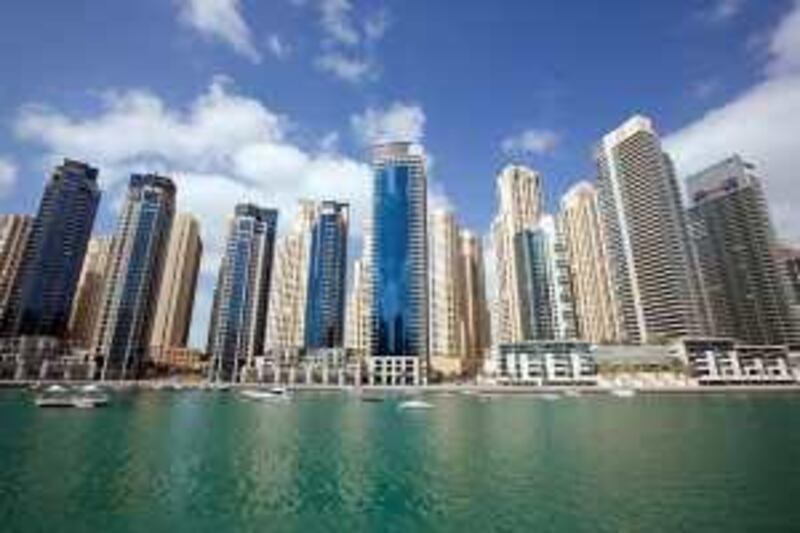A recovery in the Dubai property market is being held up by landlords who refuse to sell at "distress prices", leading analysts say, and attitudes may need to change before investors can acquire office buildings in the emirate. There are several funds with fresh money looking to come to Dubai, said Mohammed Kamal, the head of property for the Middle East at the law firm Hogan Lovells, speaking at a Cityscape panel discussion in Dubai yesterday. However, he said: "It's difficult convincing the owners to let go. Investors want a distress price, but sellers are in denial that they are in distress."
Owners are especially loath to sell high-quality buildings that are in good locations and have strong tenants, he said, despite these being the most in-demand by institutional funds and other investors. The slowness of the market to begin producing deals continues more than 18 months after prices began to decline. They eventually fell more than 50 per cent in some areas. Many buildings are only partially leased and developers need cash to continue operating.
Bank of America Merrill Lynch said on Monday the market had reached a "floor" for prime and retail assets and Dubai would have 44,000 empty homes this year. Residential prices would fall a further 15 per cent, the bank said. It predicted a continued lull in demand as "neither regulation nor demographics are favourable for the creation of a true end-user market and, in the near term, the cost of ownership is simply too expensive to lure potential buyers".
Dubai property owners are still in the "education phase" about the difference between market value and what property is "worth" to them, said Simon Townsend, the head of property investment and advisory business at Allied Investment Partners. Unless the market acknowledged the drop in prices, the volume of transactions would remain light. Ali Fakhri, the director of asset management at the property investment group AREIT Management, said the unwillingness to sell would last longer in Dubai than in more mature economies such as London.
"The difference in prices between buyers and sellers is still quite wide," he said. "All the froth has blown away, but we are still waiting for sales ? A lot of landlords are willing to listen, but getting them to sell is another issue." Still, industry analysts and consultants said Dubai had strong long-term prospects because it remained the regional city with the most developed infrastructure in addition to the high quality of life of its residents.
Barmak Besharaty, the managing director of Almas Corporate Consultancy, said he worked mostly in Saudi Arabia while his family lived in Dubai for the lifestyle. "A lot of people working in the region still want to live in Dubai," he said. "That will fuel our recovery." bhope@thenational.ae






